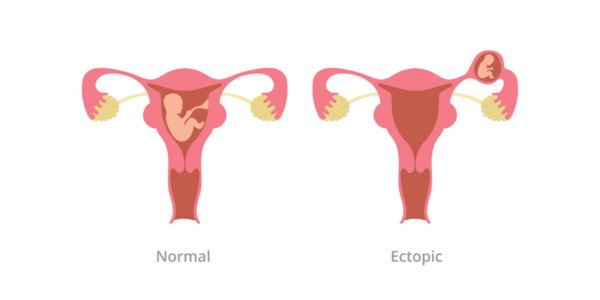Ectopic Pregnancy
Understanding Ectopic Pregnancy: Causes, Risks, and Recovery
An ectopic pregnancy occurs when a fertilized egg implants outside the uterus—most commonly in the fallopian tube. Because the embryo cannot develop properly there, this condition can pose serious health risks if not treated promptly.
While it’s a medical emergency, understanding ectopic pregnancy is essential for both partners. It not only affects physical health but also carries emotional weight, often leaving couples feeling anxious or uncertain about their future fertility.
How Ectopic Pregnancy Happens
In a typical pregnancy, the fertilized egg travels through the fallopian tube and attaches to the uterine wall. However, when the tube is damaged, blocked, or inflamed, the egg may implant in the wrong place. This misplaced implantation prevents normal development and can cause internal bleeding if left untreated.
Common causes include:
-
Pelvic inflammatory disease (PID)
-
Prior tubal surgery or scarring
-
Hormonal imbalances or smoking
-
Previous ectopic pregnancy
Early diagnosis is crucial. Symptoms such as sharp abdominal pain, dizziness, or unusual bleeding should never be ignored.
Emotional and Physical Healing
Recovery from an ectopic pregnancy involves both medical treatment and emotional support. Treatments may include medication or surgery, depending on severity. Yet, the emotional aftermath—grief, fear, or guilt—requires equal attention.
Partners should communicate openly and seek counseling when needed. Most people who experience an ectopic pregnancy can go on to have healthy pregnancies later, provided they receive proper care and follow-up.
FAQ
What is the meaning of ectopic pregnancy?
It’s a pregnancy where the fertilized egg implants outside the uterus, often in the fallopian tube, and cannot result in a viable birth.
What is another name for an ectopic pregnancy?
It’s also known as a tubal pregnancy, referring to cases where implantation occurs inside the fallopian tube.
Does ectopic pregnancy mean you're fertile?
Experiencing an ectopic pregnancy doesn’t mean infertility. With proper treatment and healing, many women can conceive successfully later.
Can sperm cause ectopic pregnancy?
No, sperm itself doesn’t cause it. However, infections transmitted through sexual activity can damage fallopian tubes, raising the risk of ectopic pregnancy.
What is the main reason for ectopic pregnancy?
The most common cause is tubal damage or blockage, which prevents the egg from reaching the uterus. Inflammation, infection, or scarring are key factors.
Who has a higher chance of ectopic pregnancy?
Women with a history of pelvic infections, prior ectopic pregnancies, smoking, or certain fertility treatments have a higher risk.
What are three signs of an ectopic pregnancy?
Typical symptoms include severe abdominal pain, shoulder pain, and vaginal bleeding, often accompanied by dizziness or fainting.
Can you get pregnant straight after an ectopic?
Doctors usually recommend waiting a few months before trying again to allow physical recovery and reduce future risks. Many women later conceive normally.
















